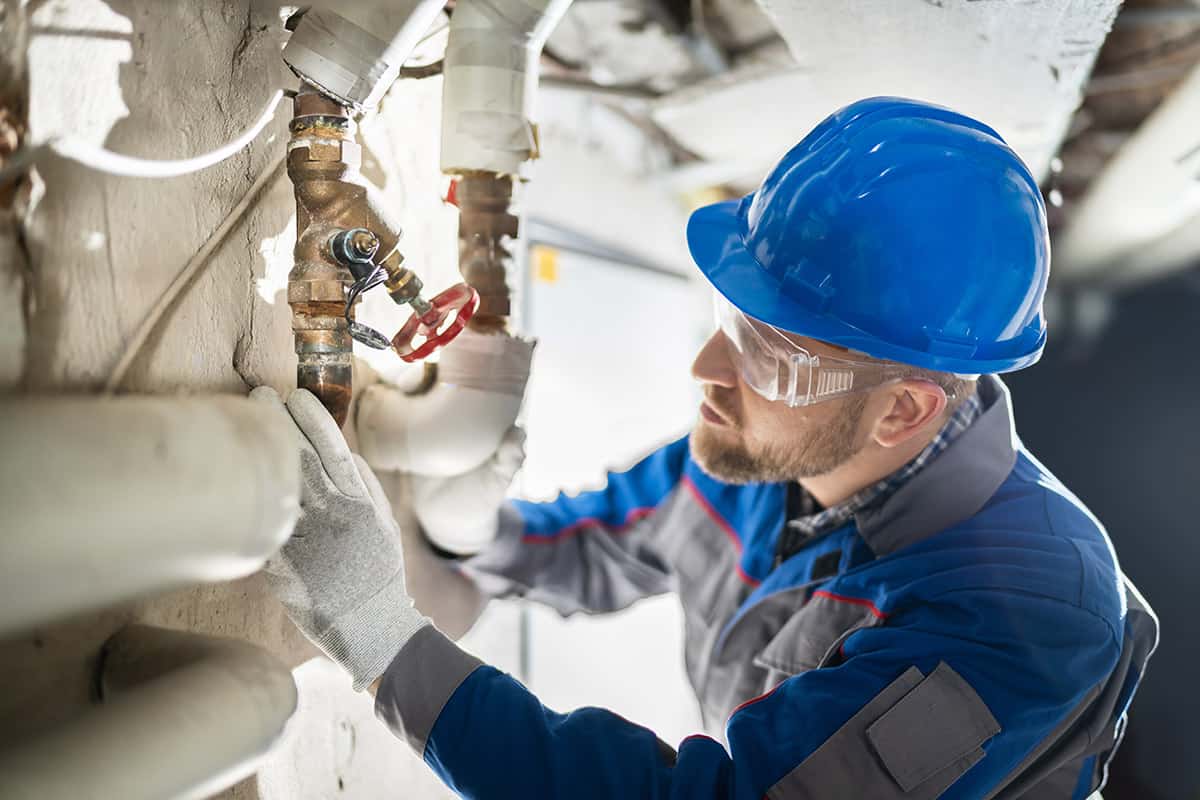Key Takeaways:
- Water damage weakens the structure of a property and can lead to mold and bacterial growth.
- Ignoring water damage can result in costly repairs and potential health hazards.
- Addressing water damage promptly can minimize repair costs and protect property value.
- Regular maintenance and investing in prevention systems can help prevent water damage.
- When hiring a water damage restoration company, consider factors like emergency response, experience, range of services, equipment, and insurance coverage.
- Certification and insurance are important when choosing a restoration company.
- Read customer testimonials and reviews to assess the quality of a restoration company.
- The water damage restoration process includes assessment, water extraction, drying techniques, and restoration/reconstruction.
- Prompt action and the assistance of a reputable restoration company are key to minimizing the impact of water damage.
Dangers of Water Damage and Why it Needs Immediate Attention
Water damage can have serious consequences for your property and health. It not only weakens the structure of your home or business but can also lead to the growth of harmful mold and bacteria. Ignoring water damage can result in costly repairs and potential health hazards. Therefore, it’s crucial to address water damage promptly and effectively.
The Hidden Threats of Water Damage
Water damage goes beyond what meets the eye. Even small leaks or minor floods can seep into the building materials, such as walls, floors, and ceilings, causing unseen damage. This hidden moisture creates an ideal environment for mold and mildew to thrive, releasing spores that can trigger allergies, respiratory issues, and other health problems.
Additionally, water damage can compromise the structural integrity of your property, leading to rot, decay, and weakening of the foundation. It can damage electrical systems, causing potential hazards like shorts and fires. The longer water damage goes untreated, the more extensive the damage becomes.
The Impact of Ignoring Water Damage
Choosing to ignore water damage can have severe consequences. Over time, the affected areas may develop a musty odor, indicating the presence of mold. Mold can spread rapidly, damaging not only the affected areas but also adjacent areas. The cost of repairing extensive water damage can be significantly higher than addressing the problem early on. Ignoring water damage can also raise concerns for insurance claims in the future, as insurance companies expect homeowners to mitigate damage as soon as possible.
Why Timely Restoration is Crucial
Timely restoration is crucial to mitigate the harmful effects of water damage. Acting promptly can prevent the growth of mold and additional structural damage to your property. By addressing water damage quickly, you can minimize repair costs and protect your property’s value. Professional Hunterdon water damage services have the expertise and equipment to handle water damage effectively and efficiently.
Moreover, immediate restoration can help salvage personal belongings, documents, and sentimental items that may have been affected by water damage. This can provide peace of mind and reduce the emotional toll that water damage can have on homeowners.
Preventing Water Damage: Essential Tips for Homeowners
While addressing water damage promptly is crucial, prevention is always the best approach. By taking proactive measures, homeowners can minimize the risk of water damage and protect their property investment. Here are some essential tips:
Identifying Common Causes of Water Damage
Understanding the common causes of water damage can help homeowners take preventive measures. Some typical causes include:
- Leaking or burst pipes
- Faulty plumbing fixtures
- Clogged gutters and downspouts
- Foundation cracks
- Roof leaks
- Improperly sealed windows and doors
By regularly inspecting these potential weak points and addressing any issues promptly, homeowners can reduce the risk of water damage.
Simple Maintenance Tricks to Prevent Water Damage
Regular maintenance can go a long way in preventing water damage. Here are some simple tricks homeowners can implement:
- Ensure proper drainage around the property by maintaining gutters and downspouts.
- Inspect and repair any cracks in the foundation or walls.
- Check plumbing fixtures for leaks and repair them immediately.
- Regularly clean and maintain the HVAC system and ensure proper drainage.
- Install and regularly test sump pumps to prevent basement flooding.
By incorporating these maintenance tasks into regular routines, homeowners can significantly reduce the likelihood of water damage.
Investing in Reliable Water Damage Prevention Systems
Besides regular maintenance, homeowners can invest in advanced water damage prevention systems to safeguard their properties. These systems include:
- Water leak detection systems that can alert homeowners to leaks and water emergencies.
- Flood sensors that can detect rising water levels and trigger alarms or shut off water valves.
- Smart home technology that allows remote monitoring and control of water sources.
By installing these systems, homeowners can detect and mitigate water damage early on, preventing extensive and costly repairs.
Choosing the Right Water Damage Restoration Company
When faced with water damage, hiring a professional water damage restoration company is essential. Here are some key factors to consider:
Key Factors to Consider when Hiring a Water Damage Restoration Company
When selecting a water damage restoration company, it’s important to consider the following factors:
- 24/7 emergency response: Water damage can occur at any time, so it’s crucial to choose a company that can respond promptly.
- Experience and expertise: Look for a company with a proven track record and technicians who are skilled in water damage restoration.
- Range of services: Ensure the company provides comprehensive restoration services, including water extraction, drying, mold remediation, and reconstruction.
- Advanced equipment: The company should have state-of-the-art equipment to effectively handle water damage restoration.
- Insurance coverage: Verify that the company is properly insured to protect both your property and their workers.
The Importance of Proper Certification and Insurance
When hiring a water damage restoration company, it’s crucial to choose one that is certified and insured. Certifications, such as those from the Institute of Inspection, Cleaning and Restoration Certification (IICRC), demonstrate that the technicians have undergone rigorous training and have the knowledge and skills to handle different types of water damage situations.
Proper insurance coverage is also important to protect against any liability in case of accidents or further damage during the restoration process. It provides peace of mind and ensures that you won’t be held responsible for any additional expenses.
Reading and Understanding Customer Testimonials and Reviews
Before finalizing a water damage restoration company, take the time to read customer testimonials and reviews. These can provide insights into the company’s reliability, customer service, and the quality of their work. Look for companies with positive reviews and satisfied customers.
You can also ask for references from friends, family, or insurance agents who have had experience with water damage restoration companies.
The Water Damage Restoration Process: What to Expect
Understanding the water damage restoration process can help homeowners know what to expect. The process generally consists of the following steps:
The Initial Assessment and Damage Evaluation
Upon arrival, the restoration experts will conduct a thorough assessment of the water damage. They will identify the source of the water intrusion, determine the extent of the damage, and classify the water damage based on its level of contamination.
This assessment is essential in developing an effective restoration plan tailored to your specific situation.
The Water Extraction and Drying Techniques
Once the assessment is complete, the restoration team will begin the water extraction process. They will use specialized equipment to remove standing water and extract moisture from affected materials such as carpets, furniture, and walls.
After the water is extracted, powerful drying equipment, including dehumidifiers and air movers, will be employed to reduce moisture levels and prevent mold growth.
Restoration and Reconstruction: Bringing your Property Back to Life
After the affected areas are completely dry, the restoration process can begin. This may involve repairing or replacing damaged materials, such as drywall, flooring, and insulation. The restoration team will ensure that your property is restored to its pre-damage condition, leaving no trace of water damage behind.
In some cases, additional measures such as mold remediation may be necessary to ensure a safe and healthy environment. By following the steps outlined in this guide, homeowners can tackle water damage effectively, from prevention to restoration. Remember, the key to minimizing the impact of water damage is prompt action and the assistance of a reputable water damage restoration company.
FAQ
Question: What are the dangers of water damage?
Answer: Water damage weakens the structure of a property and can lead to the growth of harmful mold and bacteria. It can also compromise electrical systems and potentially cause health hazards.
Question: What are the hidden threats of water damage?
Answer: Water damage can seep into building materials, such as walls and floors, causing unseen damage. This hidden moisture creates an ideal environment for mold and mildew to thrive, leading to potential health problems and further damage to the property.
Question: What are the consequences of ignoring water damage?
Answer: Ignoring water damage can result in costly repairs, extensive damage to the property, and potential health hazards. Mold can spread rapidly and cause additional damage to adjacent areas, leading to higher repair costs.
Question: Why is timely restoration crucial for water damage?
Answer: Timely restoration is important to mitigate the harmful effects of water damage. Acting promptly can prevent the growth of mold and additional structural damage, minimize repair costs, and protect the value of the property.
Question: What are some tips for preventing water damage?
Answer: Homeowners can prevent water damage by regularly inspecting and maintaining gutters, plumbing fixtures, foundation, roof, and windows. Installing water damage prevention systems such as water leak detection systems, flood sensors, and smart home technology can also help.
Question: What factors should I consider when hiring a water damage restoration company?
Answer: When hiring a water damage restoration company, consider factors such as 24/7 emergency response, experience, range of services, advanced equipment, and insurance coverage.
Question: Why is proper certification and insurance important for restoration companies?
Answer: Proper certification, such as from the IICRC, ensures that technicians have undergone training to handle water damage situations. Insurance coverage protects against liability and provides peace of mind for both homeowners and the restoration company.
Question: How can I assess the quality of a restoration company?
Answer: Reading customer testimonials and reviews can provide insights into the reliability, customer service, and quality of work of a restoration company. You can also ask for references from friends, family, or insurance agents.
Useful Resources:
- https://www.nfpa.org/ – National Fire Protection Association (NFPA) provides resources and guidelines for addressing water damage and preventing fire damage.
- https://www.epa.gov/mold – Environmental Protection Agency (EPA) offers information on mold and its impact on indoor air quality, as well as tips for mold prevention and remediation.
- https://www.iicrc.org/ – Institute of Inspection, Cleaning and Restoration Certification (IICRC) provides certifications and resources for water damage restoration professionals.
- https://www.fema.gov/ – Federal Emergency Management Agency (FEMA) offers resources for disaster preparedness, including water damage prevention and recovery.
- https://www.thisoldhouse.com/ – This Old House provides DIY tips and advice for home maintenance and repairs, including water damage prevention.
- https://www.familyhandyman.com/ – Family Handyman offers practical home improvement tips, including articles on water damage prevention and repair.
- https://www.cdc.gov/ – Centers for Disease Control and Prevention (CDC) provides information on the health risks associated with water damage and mold exposure.
- https://www.consumerreports.org/ – Consumer Reports provides unbiased product reviews and buying guides, including information on water damage restoration companies and equipment.
 Mastering Online Masterclasses: Choosing the Right Online Violin Instructors
Mastering Online Masterclasses: Choosing the Right Online Violin Instructors  Empowering Healthcare Professionals: How WT Farley Oxygen Regulators Enhance Patient Care
Empowering Healthcare Professionals: How WT Farley Oxygen Regulators Enhance Patient Care  Elevate Your Collection: Unveiling the Beauty of Custom Wine Cellars in Ottawa
Elevate Your Collection: Unveiling the Beauty of Custom Wine Cellars in Ottawa  Enhancing Your Online Presence with Real Estate SEO Services
Enhancing Your Online Presence with Real Estate SEO Services  The Epitome of Luxury: Elevating Spaces with Imperial High-End Kitchen Cabinets
The Epitome of Luxury: Elevating Spaces with Imperial High-End Kitchen Cabinets  Pokémon go accounts- Exploring the reasons behind player demand
Pokémon go accounts- Exploring the reasons behind player demand  Pokemon go shortcut to greatness – Buy now
Pokemon go shortcut to greatness – Buy now  Online slot games for classic fruit machine lovers
Online slot games for classic fruit machine lovers  Ensuring Security In Online Fund Transfers: Understanding Fraud Prevention And Risk Mitigation
Ensuring Security In Online Fund Transfers: Understanding Fraud Prevention And Risk Mitigation 




